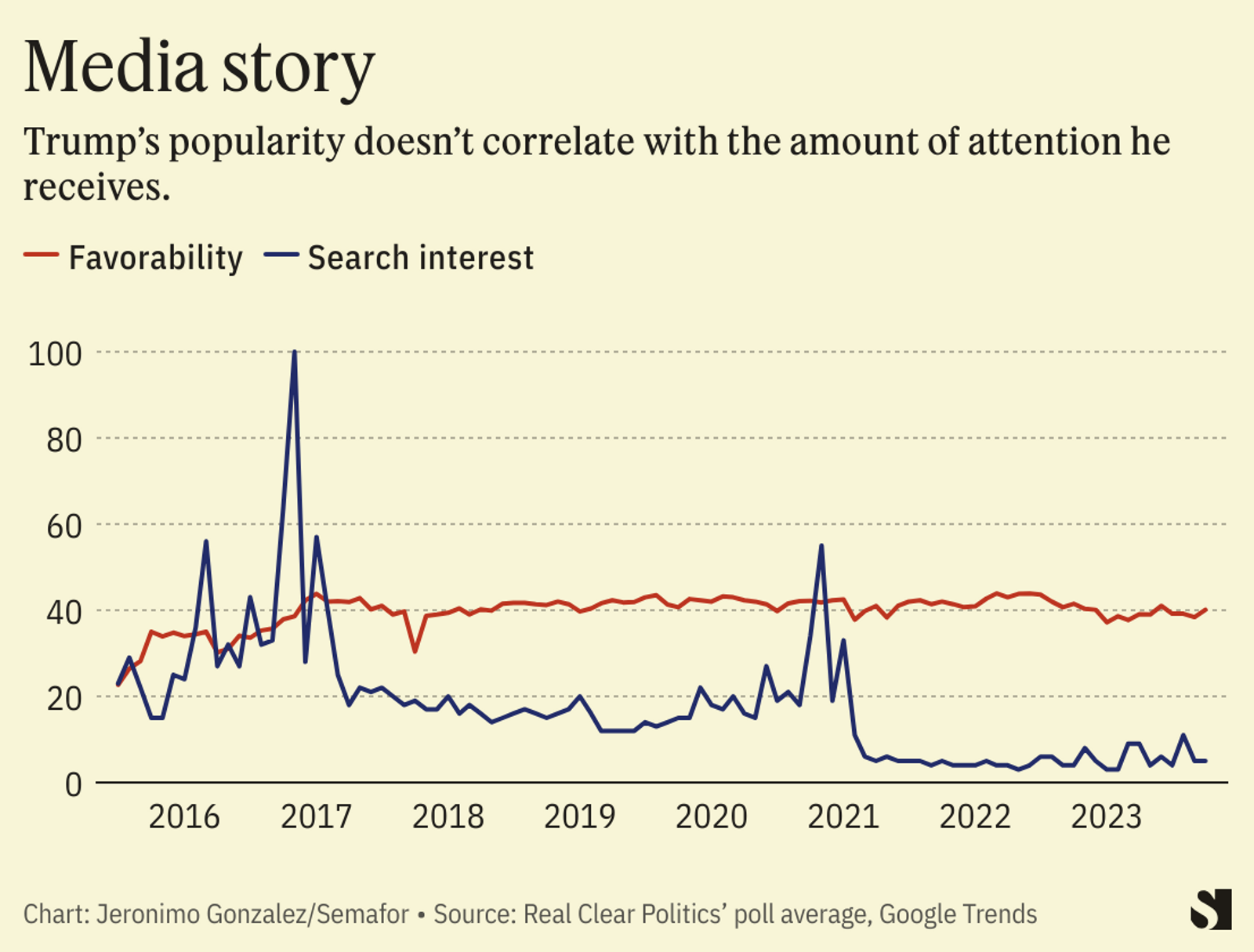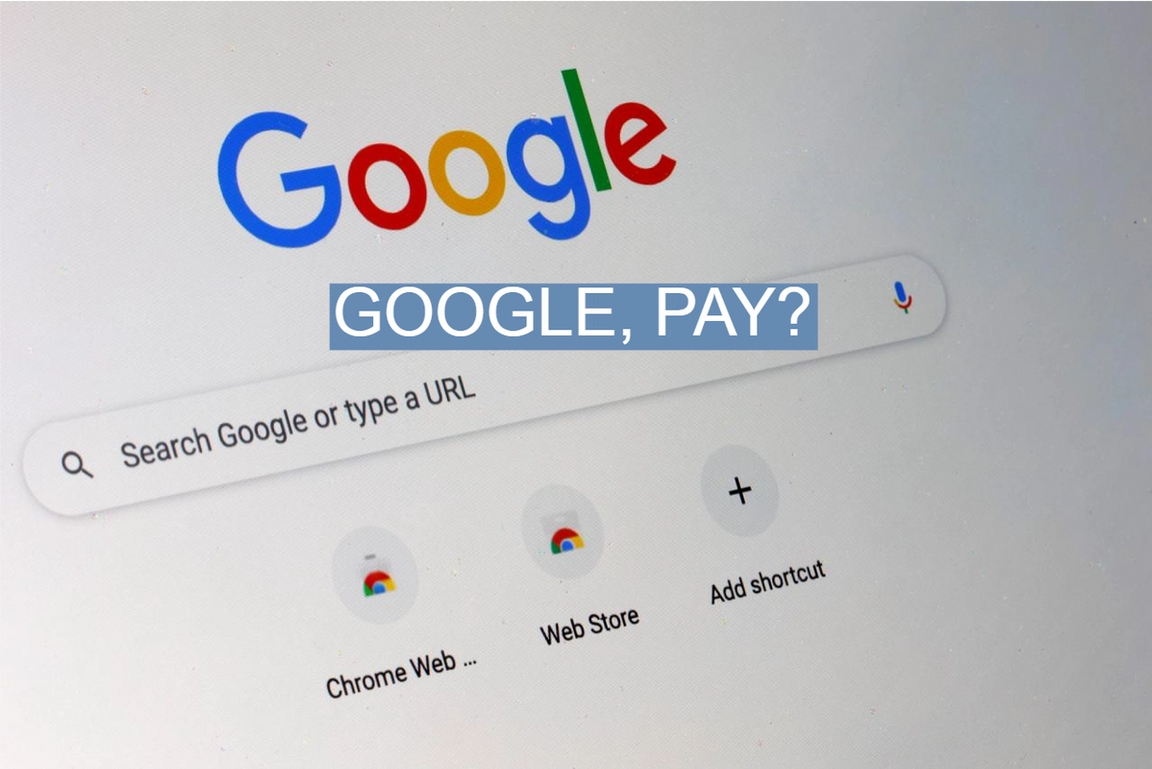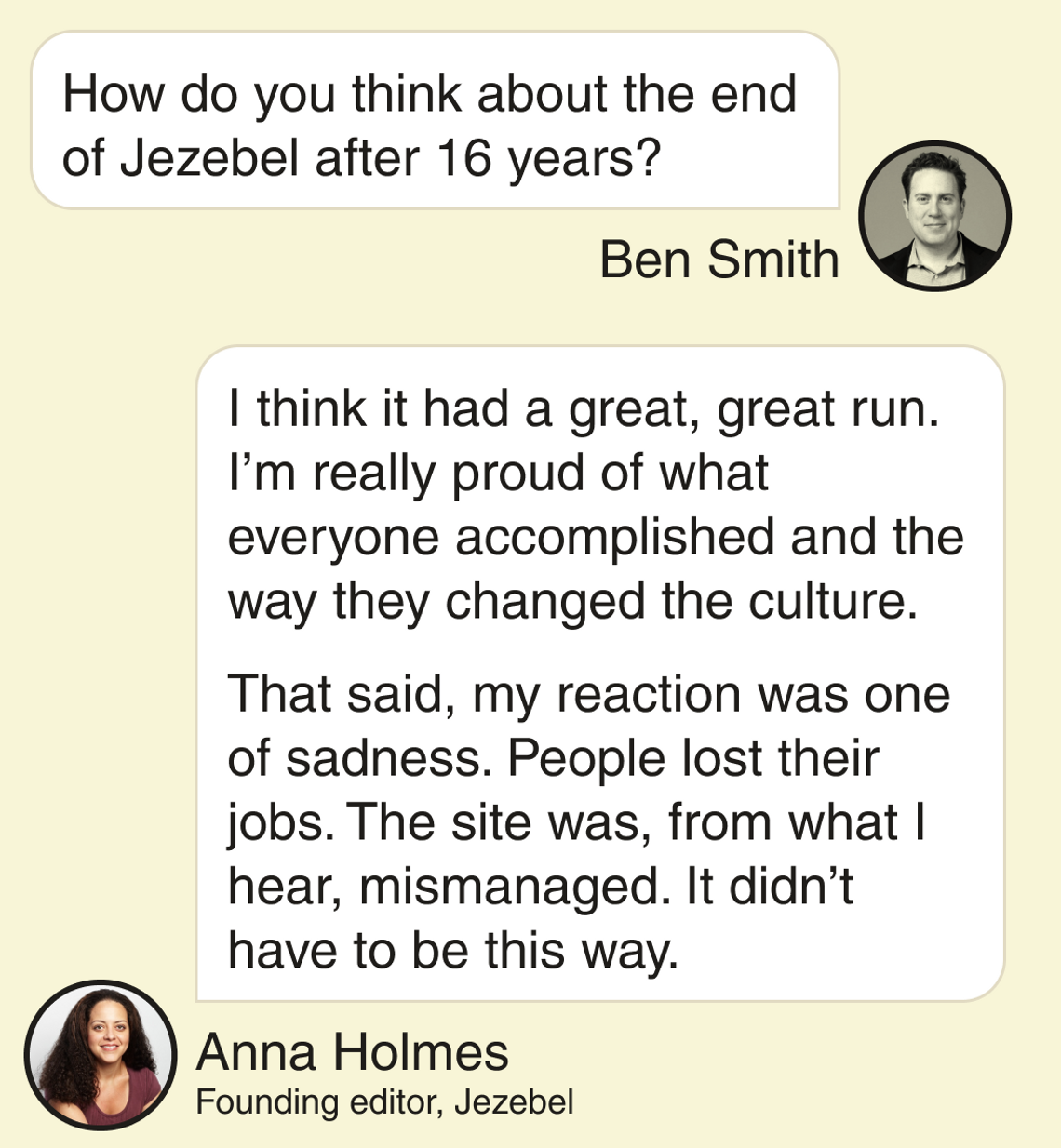 ⁛ NewsRosslyn shuffle: Politico’s new editorial leadership team is starting to make major newsroom changes. Earlier this year, new editor in chief John Harris announced the former New York Times political reporter (and Harris protege) Alex Burns would be elevated from associate editor to head of news, alongside executive editor Joe Schatz and executive director of newsroom strategy Francesca Barber. The team has already shifted the editorial focus on the website, elevating Politico’s policy and international reporting. They’ve also begun reshaping the top of the masthead: Two people familiar with the situation told Semafor that former managing editor for news Karey Van Hall is leaving the publication for USA Today in the coming weeks after she was effectively moved out of the role. The morning editor’s meeting, renamed the “impact meeting,” as well as a similar afternoon editor’s meeting, have occasionally grown tense in recent weeks, with Burns making it known when he is displeased with editorial ideas or stories, three people with knowledge of those meetings told Semafor. “My mandate is to increase the creativity and impact of our report and that is happening,” Harris told Semafor. “Any important change will be hard at times but the results have been immediately visible. This is only a first step in a process that is going to grow POLITICO’s audience and serve those readers better. Yes, we are raising our sights and standards, and I’m thrilled by the energetic response across the newsroom.” Biden stans rejoice: One emerging partisan news organization on the left is seriously gearing up for 2024. On Monday, Courier Newsroom, a network of liberal news sites, will announce a new slate of national contributors and newsletters, video series, op-eds and podcasts that largely focus on “explaining, exposing, and fighting back against threats to our freedoms and democracy.” The team will be led by Kyle Tharp, a veteran of Democratic political campaigns and author of the FWIW newsletter, which focuses on the digital side of electoral politics. Former Chicago Tribune editor Mark Jacob, online misinformation expert Melissa Ryan, independent Capitol Hill correspondent Michael Jones, and video creators Allan Piper, Liz Fleming and Maya May are all joining. As part of its new national news push, Courier also interviewed President Joe Biden last week, which the outlet will publish tomorrow on TikTok and Instagram.  REUTERS/Carlos Barria/File Photo REUTERS/Carlos Barria/File PhotoThe SF narrative: As the Asia-Pacific Economic Cooperation summit gets underway in San Francisco, local media have been poking fun at the national reporters soon to be parachuting into their “failed” city. Would-be chroniclers of the “doom loop” phenomenon can use this Mad Libs-esque story generator from hyperlocal outlet Mission Local to write their article for them. Gaza petition: A petition demanding news organizations “use precise terms that are well-defined by international human rights organizations, including ‘apartheid,’ ‘ethnic cleansing’ and ‘genocide,‘” offers a glimpse at newsrooms’ diverging policies on their staffs’ politics: Fifteen signatories self-identified as staffers at the Los Angeles Times, while none identified as being from the New York Times. Also on the petition: “A journalist asked to have their signatures removed Nov. 10 at the request of their employer, the Associated Press. That signature has been removed.” Cartoondämmerung: Editorial cartoons about Gaza turn out, unsurprisingly, to be a terrible idea. “Fire the cartoonists! Hire more editorial illustrators! Let artists who have something to say have their day—and erase the sloppy mess that an outdated generation of tired and complacent hacks has left behind,” writes Discourse Blog’s Jack Crosbie. ⁌ TVVice sliced: As it begins to settle into its new Brooklyn headquarters on 45 Main Street in DUMBO, Vice is continuing to shed remnants of the company’s business pre-bankruptcy. In addition to major cuts this week to the news division, one person familiar with the situation told Semafor that the organization’s top lawyer is leaving in the coming weeks. And Semafor has learned that Vice’s deal with MBC, the Saudi-backed media group, has been delayed. Vice is currently working with MBC on an Arabic-language platform in the style of Vice with documentary content, digital services, and digital content for the site. While the platform was supposed to debut in early fall, the launch was delayed after MBC expressed dissatisfaction with some of the work. In the soup: Fox is bringing in a former clerk to Justice Samuel Alito — and Campbell Soup’s general counsel — to clean up its legal disasters. Up early: You can now catch Sky News Today with Wilfred Frost on weekday mornings at 5 a.m. EST on NBC News Now, as the company starts to play with its new international assets. ✦ MarketingSirius moves: SiriusXM has been engaged in a yearlong rebrand, which debuted last Monday at a star-studded press event in Hudson Yards. The satellite radio company announced the launch of its new app, which, starting at $9.99 per month, undercuts its streaming competitors – something the company believes could lead people to subscribe to Sirius in addition to rivals like Spotify and Apple Music. The company also rolled out its new logo, a star meant to symbolize the celebrity and musical talent with shows on SiriusXM. Suzi Watford, the chief growth officer who SiriusXM hired earlier this year as part of the rebrand effort, told Semafor the new logo was developed in collaboration with British creative agency Uncommon. “We’ve got really high awareness, really high familiarity, but we have to do this job with this new generation of listeners to kind of educate people about what Sirius XM is and how it’s different,” she said. ✰ HollywoodBack to work: The actors’ union SAG-AFTRA has formally ended its strike, ratifying a contract that includes a 7% minimum raise, some guardrails on using AI and a mandate that “intimacy coordinators” monitor scenes involving nudity or simulated sex. British invasion? The BBC is ramping up production for American audiences even as most studios cut back, seeing the U.S. as a better market than Britain as the national broadcaster’s budget gets squeezed. ⁜ TechVapor web: Garbage Day’s Ryan Broderick mulls our notion of a “fragmentation election” and broadens it to describe a new internet with no central threads and no main story: “There is actually more internet with more happening on it — and with bigger geopolitical stakes — than ever before. And yet, it’s nearly impossible to grab ahold of it because none of it adds up into anything coherent. Simply put, we’re post-viral now.” ⁋ PublishingQatar dropped: The Daily Mail group will no longer rely on Qatari investment to fund its bid for the Telegraph, “amid fears the UK government would oppose investors from the region.” Three Body Royalties Problem: The author of The Three-Body Problem, Liu Cixin, “has been largely locked out of the IP universe he created. For over a decade, Liu’s IP rights have been passed around and fought over in China’s film industry for ever-increasing sums of money,” The Wire China reports. If the Netflix show is a hit, expect a “gold rush” for the Chinese sci-fi rights. | 







